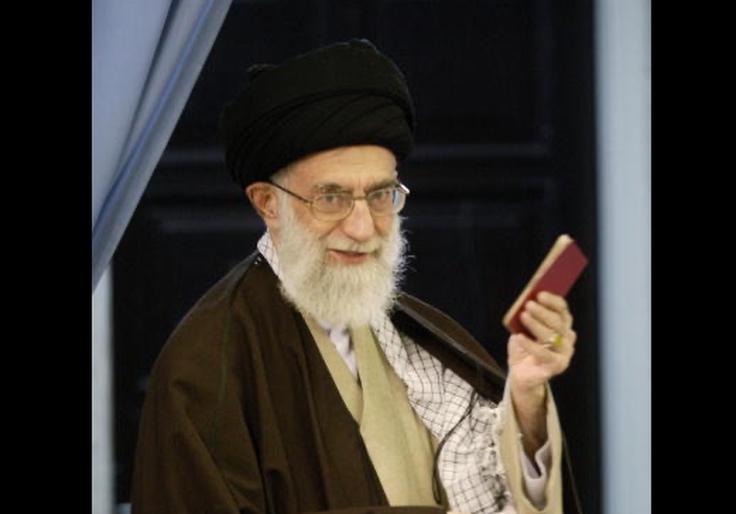
As if we didn’t have enough to worry about: This week Iran escalated its war against the West.
On June 8 the International Atomic Energy Agency (IAEA) passed a resolution calling on Iran to explain traces of uranium that it found at three undisclosed sites of nuclear activity. Hours before the IAEA vote, Iran disconnected security cameras from one of its declared nuclear sites. Then Iran began taking down IAEA cameras throughout its territory. The world’s nuclear watchdog is flying blind. “When we lose this,” IAEA director Rafael Mariano Grossi told reporters, “then it’s anybody’s guess” what Iran is doing.
But we know what Iran is doing. Iran is playing hardball. For over a year now, the Biden administration and its European partners have attempted to lure Iran back into the 2015 nuclear deal, a.k.a. the Joint Comprehensive Plan of Action (JCPOA). Those negotiations have failed. Iran keeps upping the ante. It wants Biden to drop sanctions on the Islamic Revolutionary Guard Corps, its terrorist army, and to guarantee that future presidents won’t back out of the deal. The first demand is harmful to national security and a political hot potato. The second is impossible. Result: deadlock.
Deadlock that favors Iran. The mullahs have used the months of jaw-jaw to prepare for war-war. Ayatollah Khamenei has placed radicals in top positions, including the presidency. His proxy forces have spread violence in Iraq, Yemen, and throughout the Greater Middle East. He has plotted to assassinate U.S. officials. He has evaded sanctions. And he has built up his stockpile of nuclear fuel.
Iran has enough enriched uranium for a nuclear weapon. Last week, David Albright and Sarah Burkhard of the Institute for Science and International Security (the good ISIS) wrote that “Iran’s breakout timeline is now at zero.”
Swell. How does President Biden respond? He says there is still time to make a deal that even his lead negotiator, State Department official Robert Malley, admits is “tenuous at best.”
The complacency is maddening. The other day, when a reporter asked National Security Adviser Jake Sullivan for his thoughts on Iran’s dispute with the IAEA, Sullivan said, “From our perspective, we have to view these on separate tracks, and that’s how we’re going to proceed.” Translation: We won’t let Iran’s hostile behavior get in the way of appeasement.
On June 9, Secretary of State Antony Blinken said that Iran’s moves against the IAEA are “counterproductive and further complicate our efforts to return to full implementation of the JCPOA.” Also, the sky is blue. What’s Blinken going to do about it? “We continue to press Iran to choose diplomacy and de-escalation instead,” he said.
This is willful blindness. Iran made its choice. It rejected diplomacy and de-escalation. It opted for confrontation and resistance.
Yet America is too preoccupied, too distracted, too overwhelmed to act accordingly. Inflation, crime, the border, guns, abortion, and Ukraine command the public’s attention. The growing danger from Iran does not. Meanwhile, the secretary of defense is a background player. The secretary of state and the national security adviser are staffers, not independent leaders. The president is 79 years old and not good at his job. This moment demands confidence, willfulness, boldness, imagination, and risk. What we get are odd ramblings from Biden on Kimmel.
Things must change. Iran policy is a good—and urgent—place to start. Step one is to face reality. Close the open hand that the ayatollah has spat upon. Demand enactment of snap-back sanctions. Adopt the bipartisan Senate bill that would integrate air and missile defenses in the Greater Middle East. Call for a massive defense buildup. Ease restrictions, limits, and delays on lend-lease to Ukraine, then take the same approach to arming Israel and our Gulf partners (as well as Taiwan). Recognize the importance of the Abraham Accords as the foundation for regional stability. And revive the military option to demonstrate our seriousness.
The drift toward global disorder began after former president Obama decided not to enforce his red line against chemical weapons in Syria. That was almost a decade ago. One way to repair the jagged breach in American credibility and American deterrence would be to make good on our longstanding promise that Iran won’t obtain the world’s most terrible weapon.
The current path leads to a world where America is ignored, where Israel’s existence is threatened, and where the risk of nuclear war is greater than it is even today. We’ve been telling ourselves for a while that such a world would be unacceptable. Let’s act like it.
